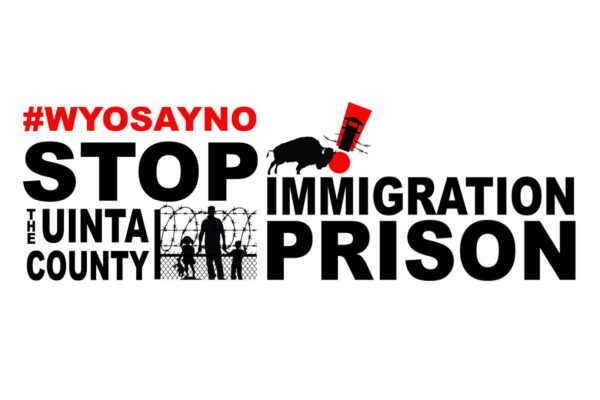Beginning in the summer of 2017, Uinta County Commissioners started exploring the possibility of contracting with a private company to construct and operate an immigration detention facility in the county.
Since the possibility of construction was first announced, there’s been uncertainty regarding whether the project would trigger a Wyoming statute that prohibits a local government from entering into a contract to construct or operate a private incarceration facility in the state without the approval from the state’s five elected officials — the governor, the secretary of state, the state treasurer, the state auditor, and the superintendent of public instruction.
Back in 2018, the Attorney General’s office said the proposed construction did not require approval from these officials because an immigration detention center does not qualify as a private incarceration facility.
But the ACLU of Wyoming disagrees and is formally asking Wyoming’s five state elected officials to weigh in on the matter.
Wyoming’s Private Correctional Facilities Act ensures that no privately run detention facility may be built or operate in Wyoming unless it meets carefully crafted standards set forth by the state’s legislature. The Act establishes a clear procedure that must be complied with before any private detention facility can operate in the state.
Additionally, the Private Correctional Facilities Act applies to any privately run “facility” and defines a facility as any “jail, prison, or other incarceration facility.” Therefore, the key question is whether Uinta County’s proposed immigration detention center meets the Act’s definition of “facility.”
While the AG’s opinion concludes that an immigration detention center does not qualify as a “facility,” it ignores basic principles of statutory construction and represents a selective reading of the Act. The Private Correctional Facilities Act defines a “facility” as any “jail, prison, or other incarceration facility.” A plain reading of the phrase “other incarceration facility” clearly encompasses an immigration detention center. In fact, the AG’s opinion even says that a common dictionary definition of “incarcerate” is “to confine.”
Additionally, according to the AG’s opinion, “jail,” “prison,” and “other incarceration facility” all refer exclusively to criminal detention centers. However, the AG’s opinion admits that the “ordinary definition of ‘jail’” is a facility for people “awaiting trial or convicted of minor offenses[;]” while a “[p]rison” is a building “for the confinement of persons held while awaiting trial or sentenced after conviction.” Therefore, the definitions of “jail” and “prison” cover the entirety of the criminal detention process—pre- and post-trial detention for both minor and more significant offenses.
Since there can be no doubt that a person being held in a detention center is being confined, a plain reading of the Private Correctional Facilities Act shows that an immigration detention center qualifies as an “incarceration facility.”
Wyoming’s laws are clear: No private detention facility — whether criminal or civil — can exist in the state unless it complies with the requirements of the Private Correctional Facilities Act.
This means that the proposed detention center in Uinta County cannot legally be built without prior approval from the state’s top five elected officials.
This is true regardless of whether Uinta County contracts directly with CoreCivic or if they sell the land to a third party who then contracts with this company. To move forward with either of these transactions without the statutorily required approval of the state’s top five elected officials would violate the legislature’s intent and would expose the county and state to potential litigation.

